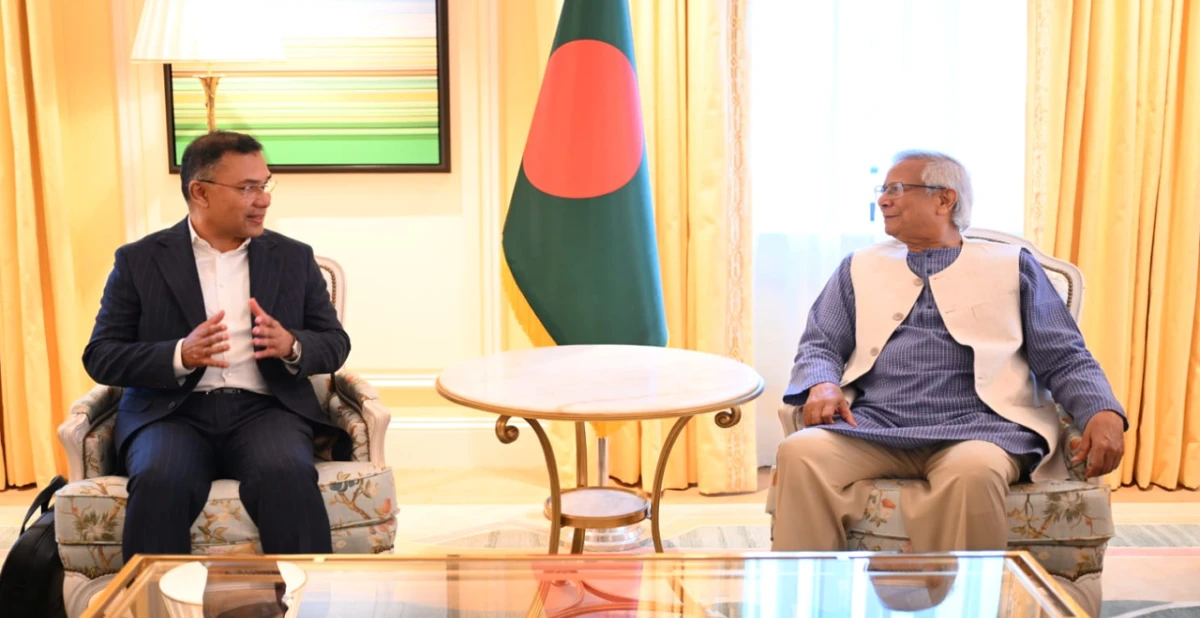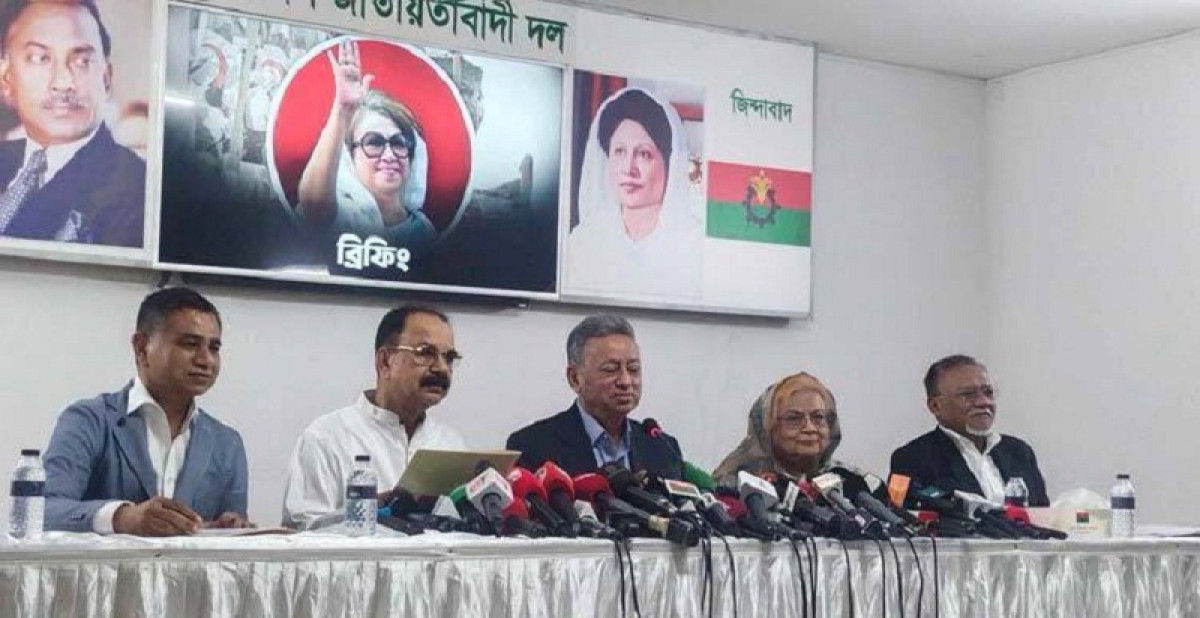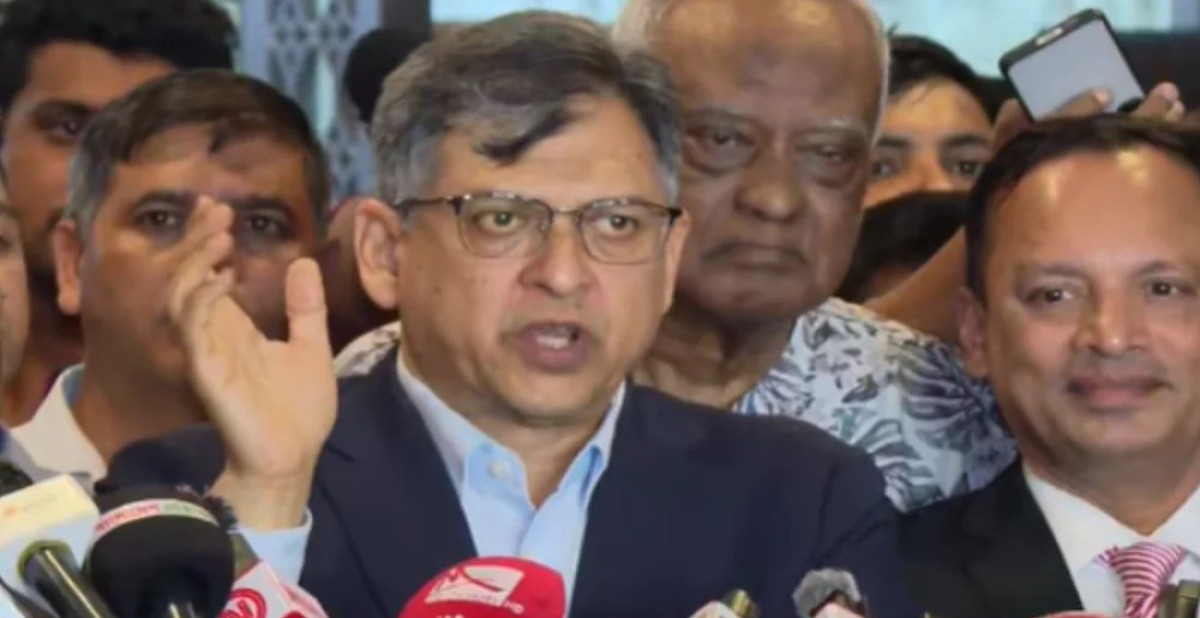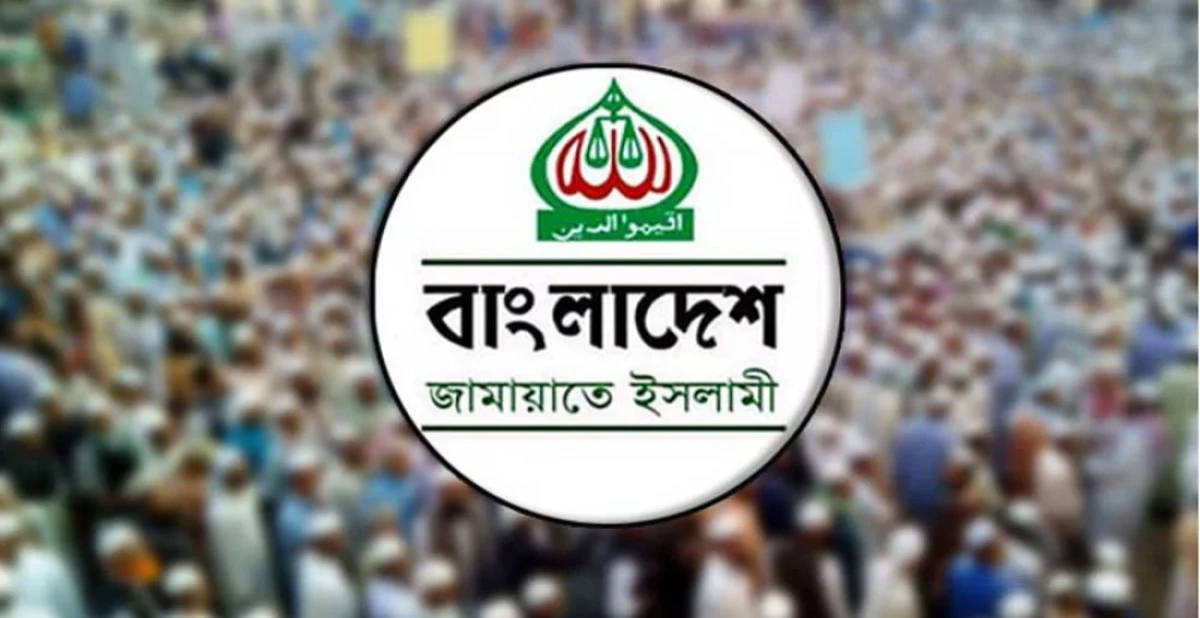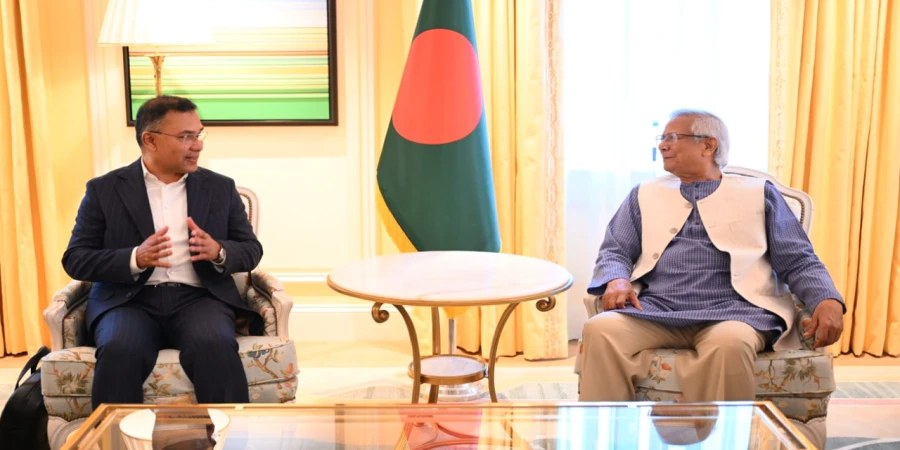
ছবি: Photo: Collected
The much-anticipated meeting between Dr. Muhammad Yunus, the Chief Adviser of the Interim Government, and Tarique Rahman, the Acting Chairman of the Bangladesh Nationalist Party (BNP), has concluded in London. The closed-door discussion took place on Friday, June 13, beginning at 9:00 a.m. local time (2:00 p.m. Bangladesh time) and ended at approximately 10:30 a.m. Following the meeting, Tarique Rahman was seen leaving Park Lane’s hotel with a visible smile on his face.
After the meeting, several political leaders offered their immediate reactions to Kalbela. Many welcomed the dialogue, while others raised concerns about transparency and inclusion.
In his initial response, Liberal Democratic Party (LDP) President Oli Ahmed expressed optimism that the conversation between the two leaders could result in positive developments for the country. He remarked that even if all reforms are not achieved before the proposed election date, accomplishing fifty percent would be a meaningful step.
Revolutionary Workers Party General Secretary Saiful Haque noted that the meeting helped ease the uncertainty and mistrust surrounding the electoral process. He emphasized that it created a new opportunity for speeding up the judicial process and structural reforms, highlighting a potential shift in the government's perception of the necessity for dialogue with the BNP and other parties.
Communist Party of Bangladesh (CPB) General Secretary Ruhin Hossain Prince suggested that if essential reforms are completed, the upcoming election could feasibly take place in December. However, he also stated that unless the government avoids continuing controversial activities and a concrete election date is announced by the Election Commission, political stalemates may persist. He also called for a white paper detailing the costs and scope of the Chief Adviser’s London trip and questioned the presence of National Security Adviser Dr. Khalilur Rahman at the post-meeting press briefing.
Mojibur Rahman Monju, Chairman of the Amar Bangladesh (AB) Party, also viewed the meeting as fruitful. He stated that his party had long advocated for dialogue over political hostility and believed this meeting might finally bridge the gap of distrust that had developed between the BNP and the interim government. According to Monju, both sides had misgivings due to careless comments from advisers and some BNP leaders, but the London dialogue appeared to ease those tensions. He expressed support for the consensus reached regarding holding elections before Ramadan in 2026.
Mahmudur Rahman Manna, President of Nagorik Oikya (Citizens’ Unity), viewed the conversation around moving the election timeline forward to February as a step toward democratic restoration. He emphasized that any political discussion on elections indicated forward momentum for democracy and urged that the time before the elections be utilized efficiently to implement necessary reforms.
Sharif Nurul Ambia, President of Bangladesh JASAD, welcomed the political consensus on the election timeline. He acknowledged that while newer parties like the National Citizen Party (NCP) may express their views, attention should be paid to what larger, registered political parties have to say. He also stated that January or February would be suitable for elections considering weather conditions and that reforms proposed by NCP could be implemented by December.
Jonayed Saki, Chief Coordinator of the Ganosamhati Andolon, pointed out that a fixed election date would allow all parties to focus on reforms through mutual understanding. He claimed to have heard that the Chief Adviser gave a clear indication regarding a February election, suggesting that room for dialogue had opened and that a pre-Ramadan election would be ideal. Saki underlined that all political parties were prepared to compromise on the issue of reforms to ensure a fair election.
However, not all reactions were entirely supportive. Ariful Islam Adib, Senior Joint Convener of the National Citizen Party (NCP), criticized the idea of reconsidering the election date without broader consultation, stating that the opinions of other political parties and families of martyrs should be considered. He nonetheless welcomed the conditionally proposed 2026 pre-Ramadan election but insisted that essential steps like issuing the July Declaration, initiating judicial reforms, and restructuring the Election Commission must precede it.
Hasnat Abdullah, the Chief Organizer of NCP’s southern region, echoed cautious optimism but criticized the lack of emphasis on post-uprising justice and reforms during the London meeting. He shared his views via a post on his verified Facebook profile, suggesting that the absence of these key issues might undermine the effectiveness of the broader dialogue.
In a joint statement released after the meeting, Dr. Yunus and Tarique Rahman indicated that if preparations are completed, the next national election could be held in the week before Ramadan in 2026. They emphasized that sufficient progress must be achieved in both reform and judicial matters to meet that timeline.
While the meeting between the interim government’s highest official and the BNP’s acting leader has spurred various reactions, ranging from hope to skepticism, it has undeniably shifted the dynamics of the ongoing political crisis in Bangladesh. Whether this high-profile discussion leads to meaningful reform and credible elections remains to be seen in the coming months.
repoter



